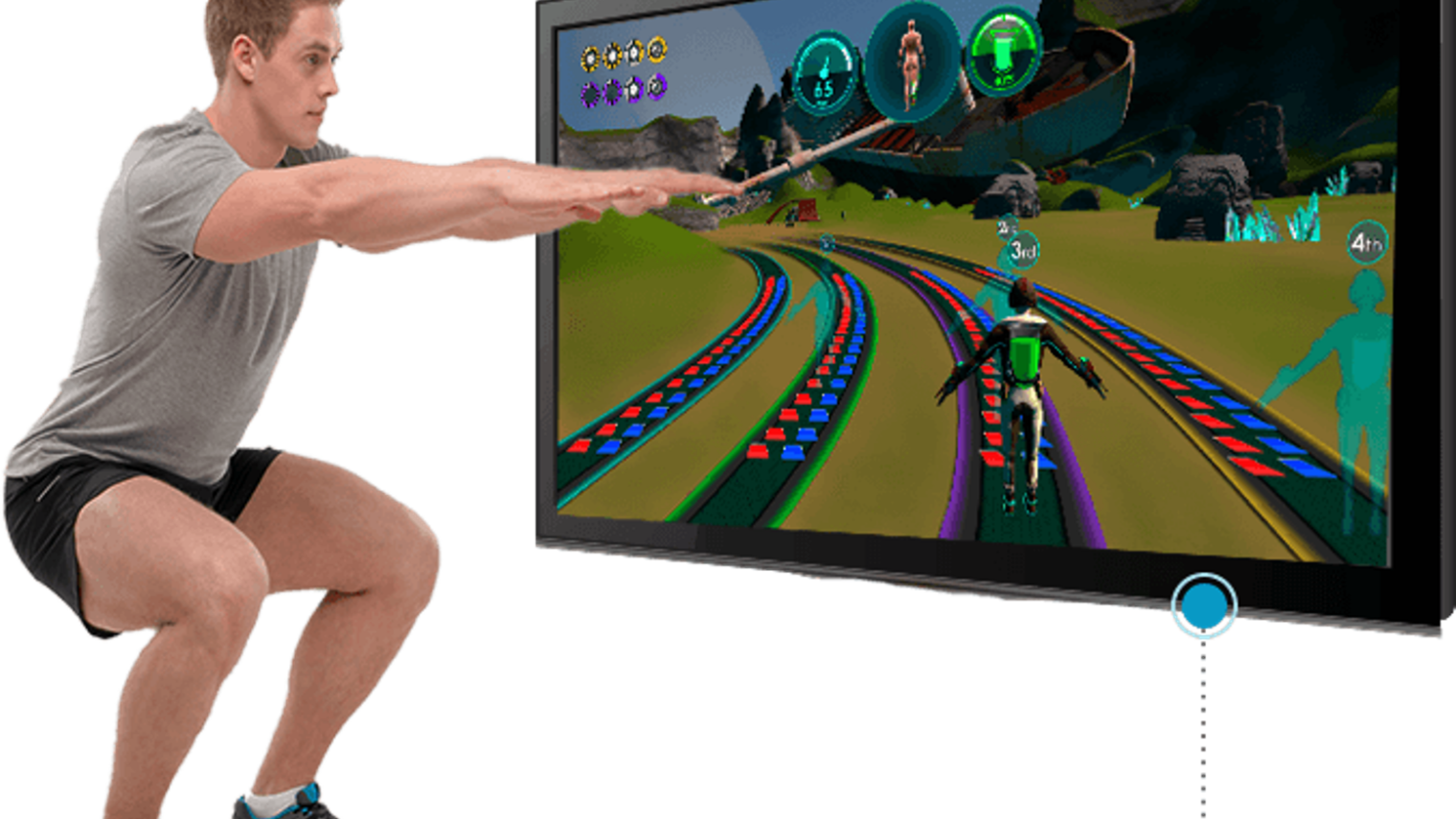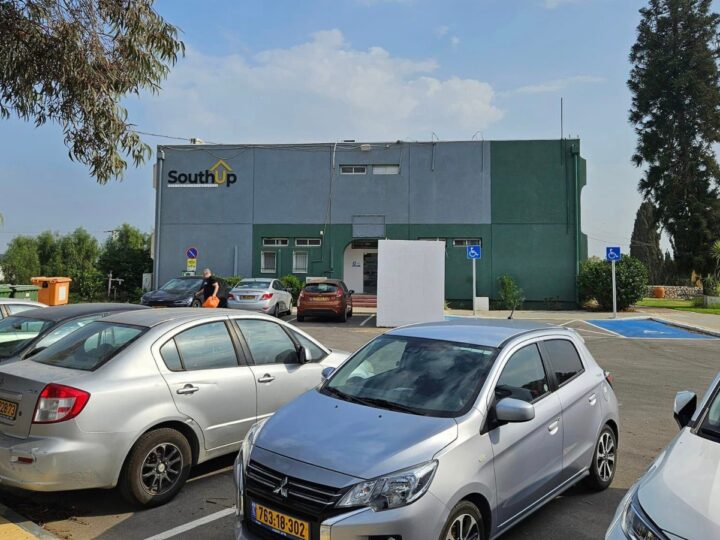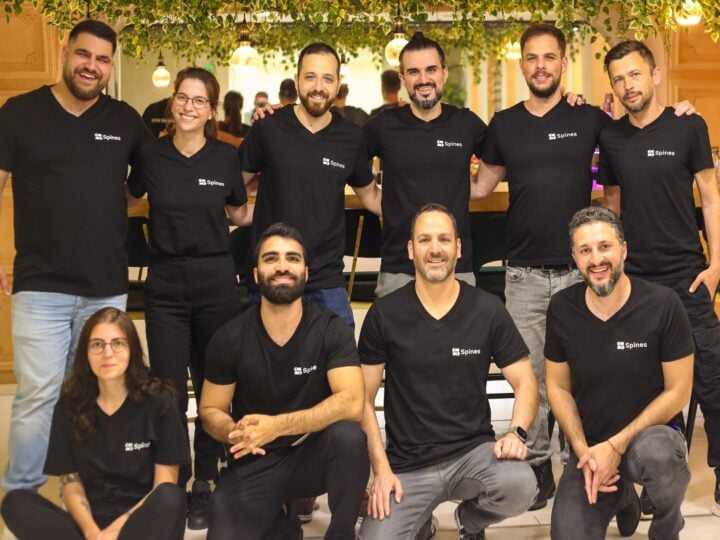“Adherence to traditional physiotherapy approaches is painfully low, and boring routines often demotivate patients and fail to improve patient health as intended,” says Dudi Klein, founder and CEO of BioGaming, one of several Israeli companies using virtual-reality gaming and robotics technology to introduce fun into physical therapy exercises.
“For all of the digital and mobile innovations in the healthcare space, physiotherapy has been a bit left out,” he adds. “If telemedicine is enabling more cost-effective, convenient and connected healthcare, then BioGaming is the equivalent for rehab. Our platform takes it a step further by making therapy into a game to be won.”
In November, the Tel Aviv-based BioGaming introduced two industry firsts to physiotherapists in the United Kingdom, Europe and Israel: the BioGaming at-home rehabilitation system and companion iOS and Android applications to facilitate communication with patients.
The BioGaming home platform uses patented motion-detection algorithms to power a Microsoft Kinect 3D motion-capture camera. The camera can be connected to Microsoft Windows for computers or paired with a provided Xbox One for use with a television.
Physiotherapists can rent BioGaming systems on a month-to-month basis. The app allows them to can create personalized routines for patients and upload them to the cloud for the patient. All the captured data from the Kinect camera during the sessions is transmitted back to the cloud, so physiotherapists and patients can track progress automatically.
“We’re taking the proven physiotherapy routines, real-time biofeedback and personal encouragement of sessions in the hospital or clinic and bringing it home,” says Klein.
BioGaming’s patent-pending solution for creating and delivering gamified exercise routines earned the company the Innovation Award at Medica, the world’s largest medical trade fair, in 2014. BioGaming is now awaiting FDA approval in the United States.
More PT fun-makers
Other Israeli companies are also putting high-tech fun and convenience into physiotherapy.
Motorika Medical, founded in 2004, makes and markets robotic systems for physical therapy, one for neurological and the other for orthopedic rehab.
The ReoGo three-dimensional robotic system for upper-limb therapy facilitates repetitive arm movements through the use of a motorized robotic arm. The neuromuscular retraining device, primarily for patients in stroke recovery, enhances motivation through interactive games that imitate natural hand movements. The system has been clinically proved to improve recovery and treatment outcome by providing up to 10 times more repetitions per session than an average non-robotic treatment.
The second Motorika product, the ReoAmbulator robotic gait-training device, combines body weight support with an advanced virtual-reality environment to help rehabilitate children and adults experiencing difficulties with walking, balance, coordination, posture or stamina.
Both systems include Enhanced Learning Intelligent Technology (ELITE), an adaptive personalized therapy technology to accelerate neurological and orthopedic rehab based on patient-specific data and instant verbal, audio and visual feedback.
Based in Caesarea with offices in the United States, China and Hong Kong, Motorika was founded by medical technology serial entrepreneur Dr. Shlomo Ben-Haim, formerly a professor of medicine, physiology and biophysics at both Harvard University and the Technion-Israel Institute of Technology.
Video Therapy of Yehud offers a platform enabling physiotherapists anywhere to create personalized interactive training videos and evaluate and monitor patients remotely, overcoming barriers to one-on-one therapy such as cost, distance, time and accessibility.
Video Therapy was developed by Tel Aviv rehab physiotherapist Roy Shteren four years ago. “We realized a lot of patients could have a great influence on their rehab outcomes if they had the right compliance solutions to overcome barriers,” he tells ISRAEL21c. “Our vision is to change the way therapy is delivered and consumed.”
The company also builds on-site training zones for healthcare providers, using the Video Therapy platform. The first installation, in the Ramat Gan municipality, enables the treatment of seven different patients in one room with one physical therapist. In 2016, up to 10 more training zones will be built all over Israel, says Shteren.
So far, some 3,500 Israeli patients and 200 therapists are using Video Therapy in rehab and medical centers, private clinics and adult daycare centers. “We also market it as a full service to partners without their own rehab clinics,” says Shteren.
A Kinect application and smartphone application are in development, and Video Therapy has initiated its first pilot in the United States, with the University of Dayton in Ohio.
Also in the rehab space with a gaming twist is iFeel Labs of Yavneh, maker of a game system using a wearable biosensor to help people with asthma and COPD learn how to breathe effectively and improve lung function.
“Our mobile games are favorite and popular games (like Candy Crush) which have been converted to even more exciting biosense games,” according to the company, which recently was a finalist in the Medica international medical apps competition in Dusseldorf. “The app guides you when exactly to inhale and exhale. … You can only progress in the game when you are breathing properly and healthily.”
https://www.youtube.com/watch?v=GPO5Lfev7wk

















